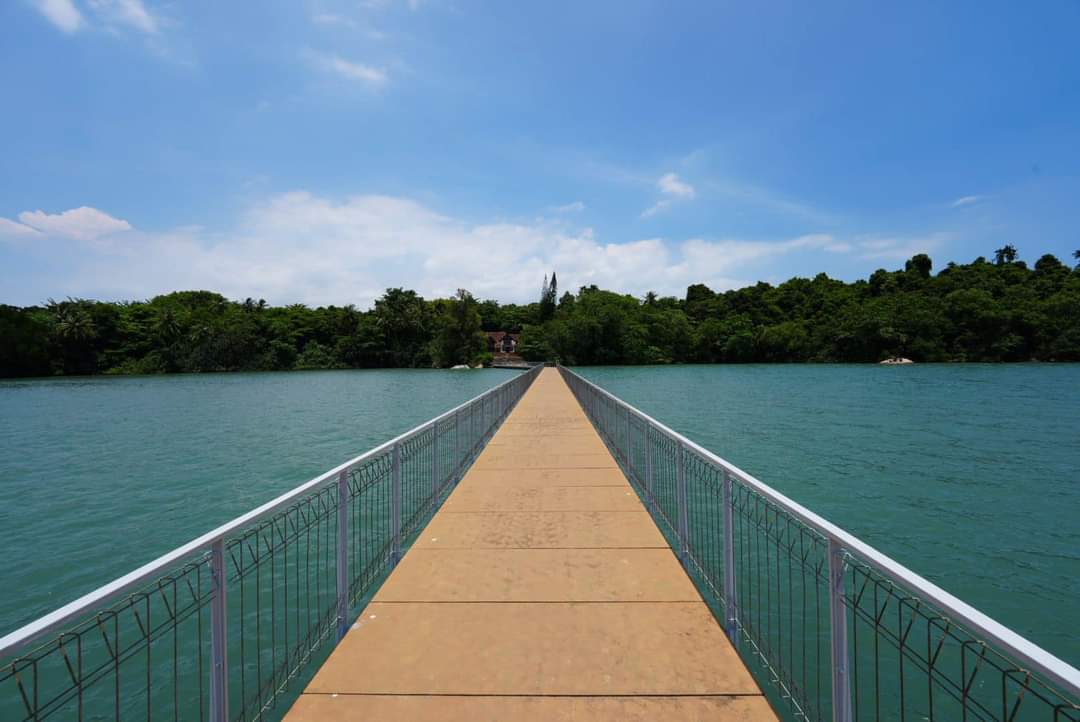Russia-Singapore trade turnover in 2021 up 35.6%
The trade turnover between Russia and Singapore exceeded $2.2 billion last year, an increase of 35.6% compared to 2020. Alexander Svinin, Russia's trade representative in Singapore, said on Friday.
"Russia's exports were $1.67 billion, up 45.1 per cent from 2020, while imports from Singapore were $0.6 billion, up 14.8 per cent," the trade representative pointed out. According to him, "the biggest increase in exports came from machinery, equipment and vehicles, as well as textiles and textile products". At the same time, Svinin noted, "the volume of imports from Singapore fell sharply in the group of 'mineral products' and 'mineral fuel, oil and products of their distillation'.
He also added that "Russia's non-energy non-resource exports last year were the highest since 2017 at more than $188 million".
The trade representative said that "in January this year, there were significant exports from Russia to Singapore in product categories such as food, machinery and equipment".
Source
Scientists have found a useful substitute for palm oil
Scientists from Nanyang Technological University of the Republic of Singapore and the University of Malaya Malaysia have decided to try synthesizing a healthier and more environmentally friendly alternative to palm oil from microalgae.
The scientists added pyruvic acid, which is present in all living cells, to a solution consisting of Chromochloris zofingiensis microalgae and liquid culture medium. This mixture was exposed to UV light to stimulate photosynthesis. After two weeks, the algae was removed, washed, dried and then treated with methanol. This procedure was required in order to break the bonds between the algae proteins and the oils produced by these proteins during photosynthesis.
The resulting oil was found to have similar qualities to palm oil. Only this plant product does not contain as many saturated fatty acids, which increase the risk of cardiovascular diseases.
On the contrary, seaweed oil has a higher percentage of heart-healthy polyunsaturated fatty acids.
Source
Singapore won't bring back pandemic-era restrictions - finance ministry chief
After two years of fighting the spread of the coronavirus, Singapore has lifted most of its tough pandemic-era restrictions as of April 1, but even if the number of infections rises again, the government will not increase or strengthen current pandemic control measures, Finance Minister Lawrence Wong said, The Thaiger writes on April 4.
Outdated rules include the requirement to wear masks in public places, as well as food and travel restrictions. Singapore is the first country in Southeast Asia to adopt a "living with coronavirus" strategy and neighbouring countries are expected to follow suit later this year.
According to the health minister, the current policy on the movement of unvaccinated Singaporeans, as well as entry restrictions, will not be reviewed until the country's health status is deemed "fully stable".
Source
Wealthy Chinese move their assets to Singapore
More and more wealthy Chinese are worried about the safety of storing their money on the mainland, and are choosing Singapore as a more secure haven for this purpose.
As the protests in Hong Kong in 2019 somewhat disrupted the region's economy, wealthy Chinese have since sought alternative places to store their wealth. Singapore has proved attractive in this light because of the large number of Mandarin Chinese speakers and, unlike many countries, there is no wealth tax here.
The trend intensified last year after Beijing's sudden crackdown on the education industry and its emphasis on "shared prosperity" - moderate wealth for all, not just the select few.
Such evidence follows an interview on CNBC with representatives of firms in Singapore that help wealthy Chinese move their assets to the city-state through a family office structure.
A family office is a private company that invests and manages capital for wealthy households. In Singapore, setting up a family office usually requires assets of at least $5 million.
Source
Singapore's pavilion wins World Expo gold award
The Singapore Pavilion has won a gold award at the World Expo in Dubai. Designed by Singapore-based architecture studio WOHA, the pavilion offered visitors an immersive experience of the initiatives Singapore is implementing on its way to becoming a 'city embedded in nature'. The project was designed as a self-contained, zero-energy eco-system throughout the duration of the exhibition, and it has been repeatedly included in numerous lists and rankings of the best EXPO-2020 facilities. The pavilion showcased Singapore's experience and expertise in developing and implementing urban innovation, as well as its commitment to creating a sustainable future. It also served as a platform for sharing ideas on how to create cities of the future that meet the needs of both their residents and the environment.
The decision to award "gold" for "architecture and landscape" in this size category was made by a prestigious international jury of nine experts in various fields. Members of the jury visited each of the pavilions on show during the first three months of 2022.
Source
Singapore built an entire street specifically for photos on social media. Bloggers love it
Singapore was voted the most popular city for photographers in 2022 by the travel publication Big 7 Travel. It beat out scenic destinations from around the world, including Hawaii, Tokyo, New York and London.
Kampong Glam, a historic Muslim quarter in the centre of the country, is one of the most scenic spots.
Sultan Hussain and his family acquired the 54-acre estate in 1824. Kampong Glam became a red-light district in the 1920s before being transformed into a Malay heritage centre in 1999.
Today, the area is home to some of Singapore's most vibrant street art, as well as a vibrant bar and restaurant scene.
Source
